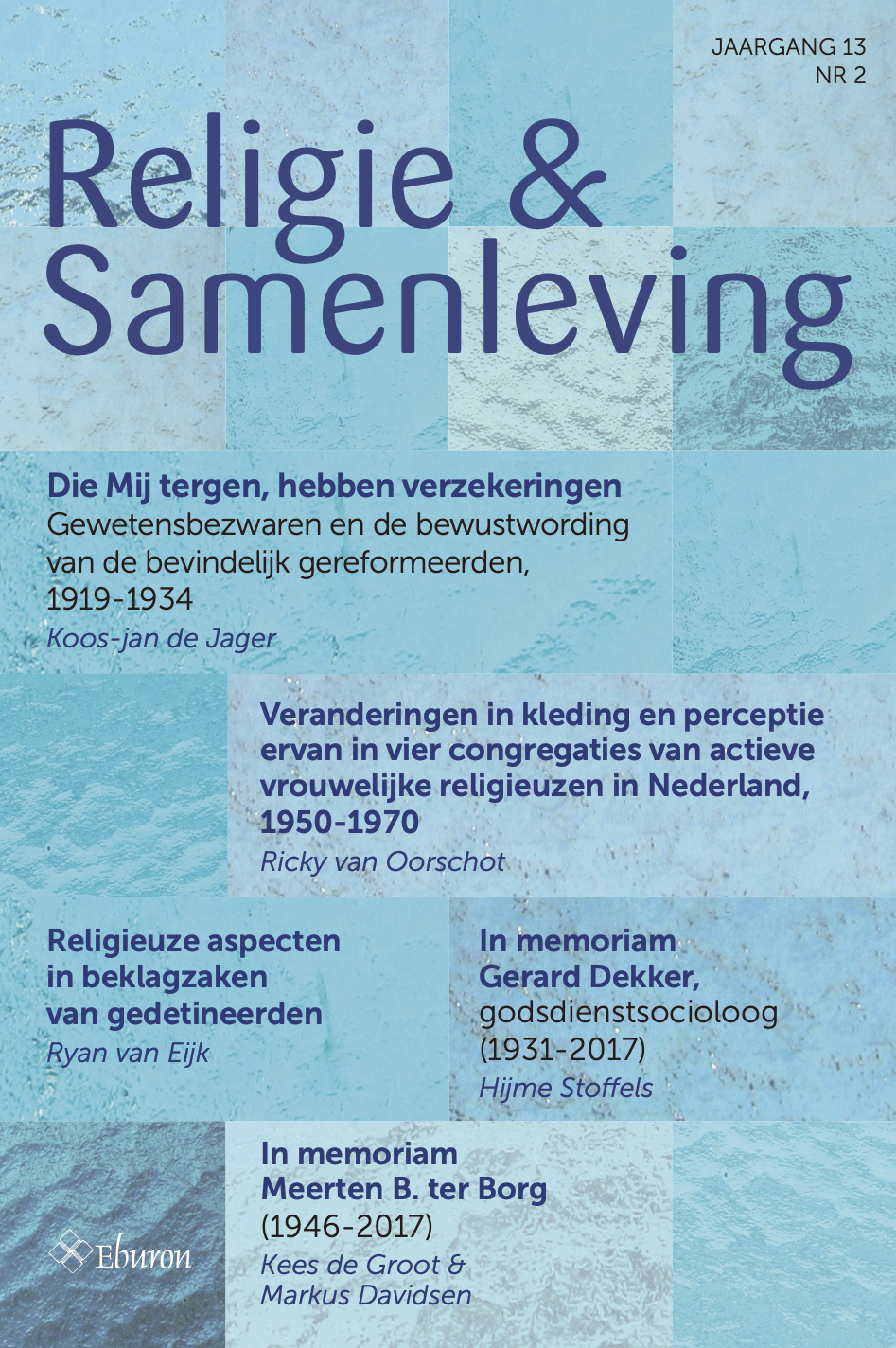Die Mij tergen, hebben verzekeringen
Gewetensbezwaren en de bewustwording van de bevindelijk gereformeerden, 1919-1934
DOI:
https://doi.org/10.54195/RS.11853Samenvatting
In 1919, the Disability Law came into force as part of the Dutch social insurance system. Goal of the law was to protect the working class against financial losses due to an industrial accident. The so-called ‘bevindelijk’ (pietistic) gereformeerden, a minority group of ultraorthodox protestants had religious objections against the law. Founder and political leader of the SGP (Reformed Political Party) G.H. Kersten led the protest movement against the assurance laws. He insisted to his followers that they should not take part in the administrative preparations for the Disability Law and presented a petition to the minister, who on his turn prepared an exception for the conscientious objectors, which took effect in December 1920. After 1919, G.H. Kersten became the spokesperson of the conscientious objectors, asking the minister for exceptions for his group. Officials of the ministry observed that it seemed that Kersten strongly boosted the conscientious objections among his followers, since some of them became conscientious objectors only after Kersten made it into a political battle cry. The political actions against the Disability Law offer a new perspective to the history of the bevindelijk gereformeerden and the SGP. This can be described as subjectification, the process when a minority group becomes aware of its own existence and claims a place in the political and religious order. Kersten constructed his bevindelijk gereformeerde minority group, which did before only exist as small, scattered communities of orthodox protestants. He successfully claimed a place for his group on the Dutch political scene.




